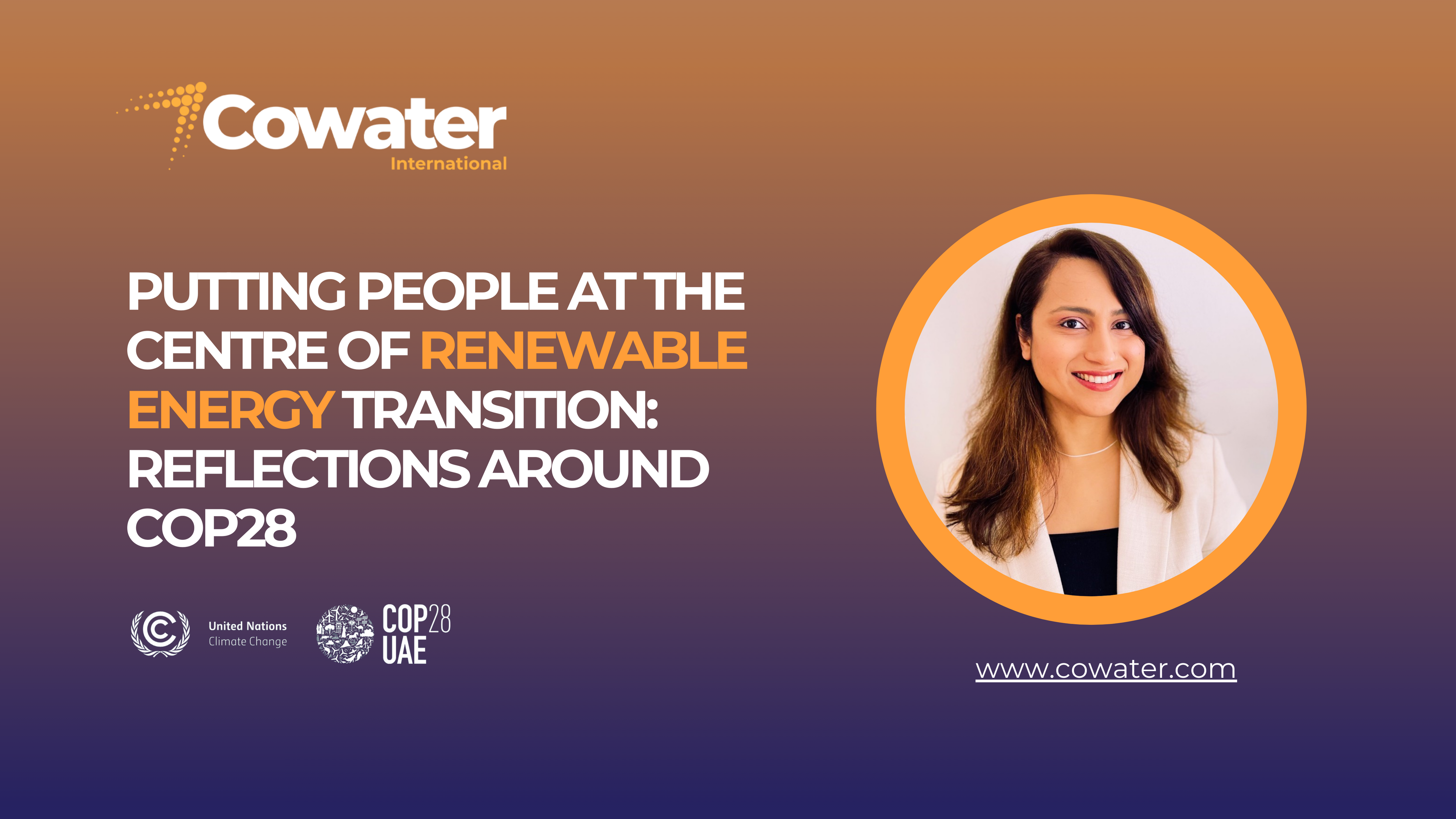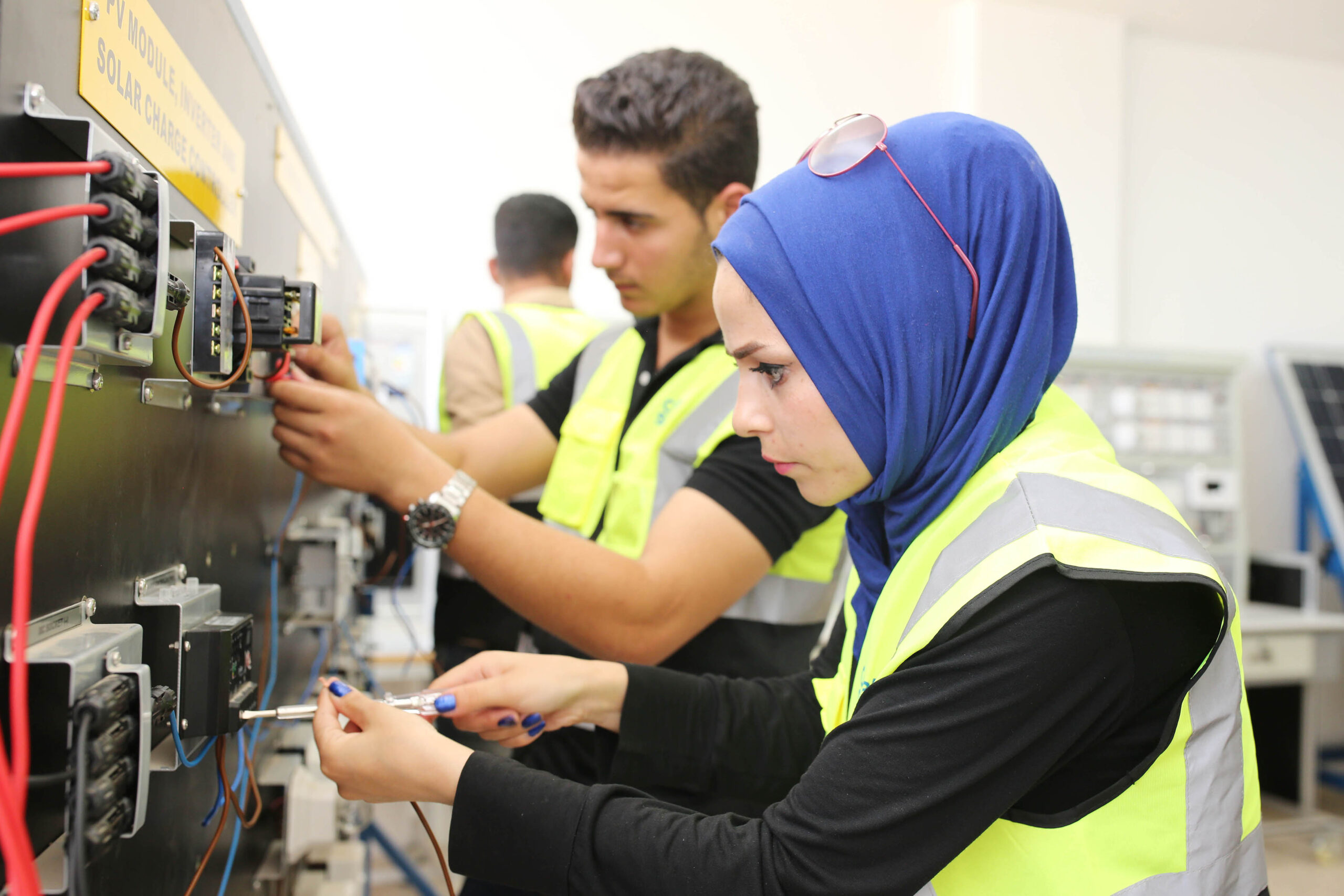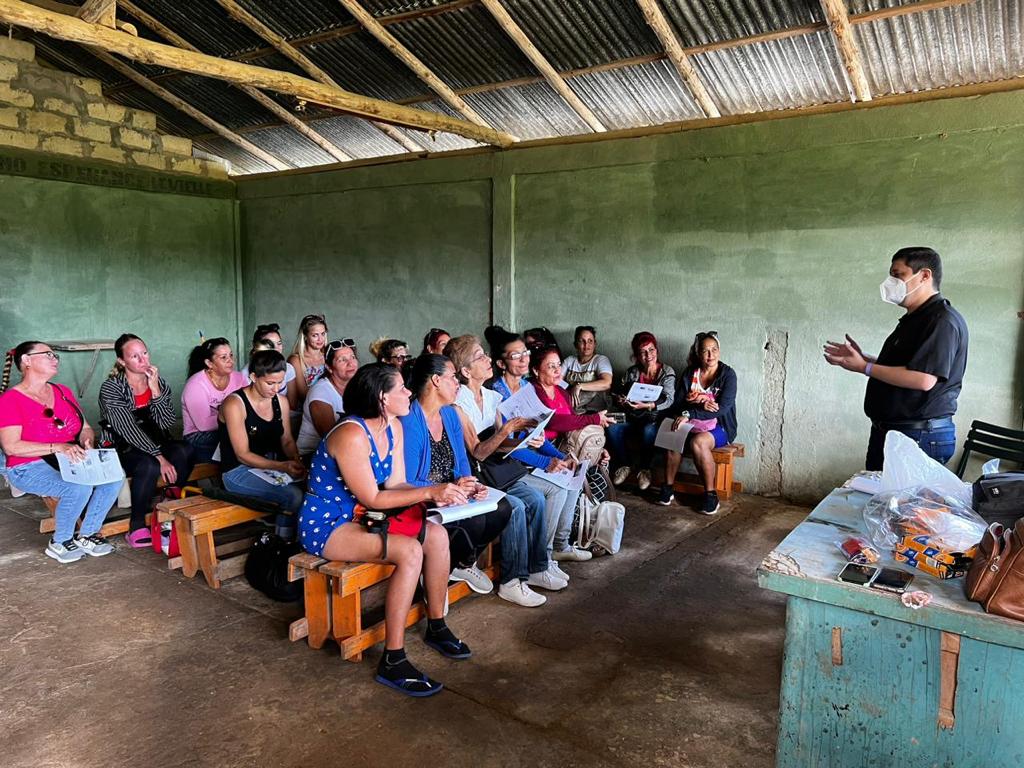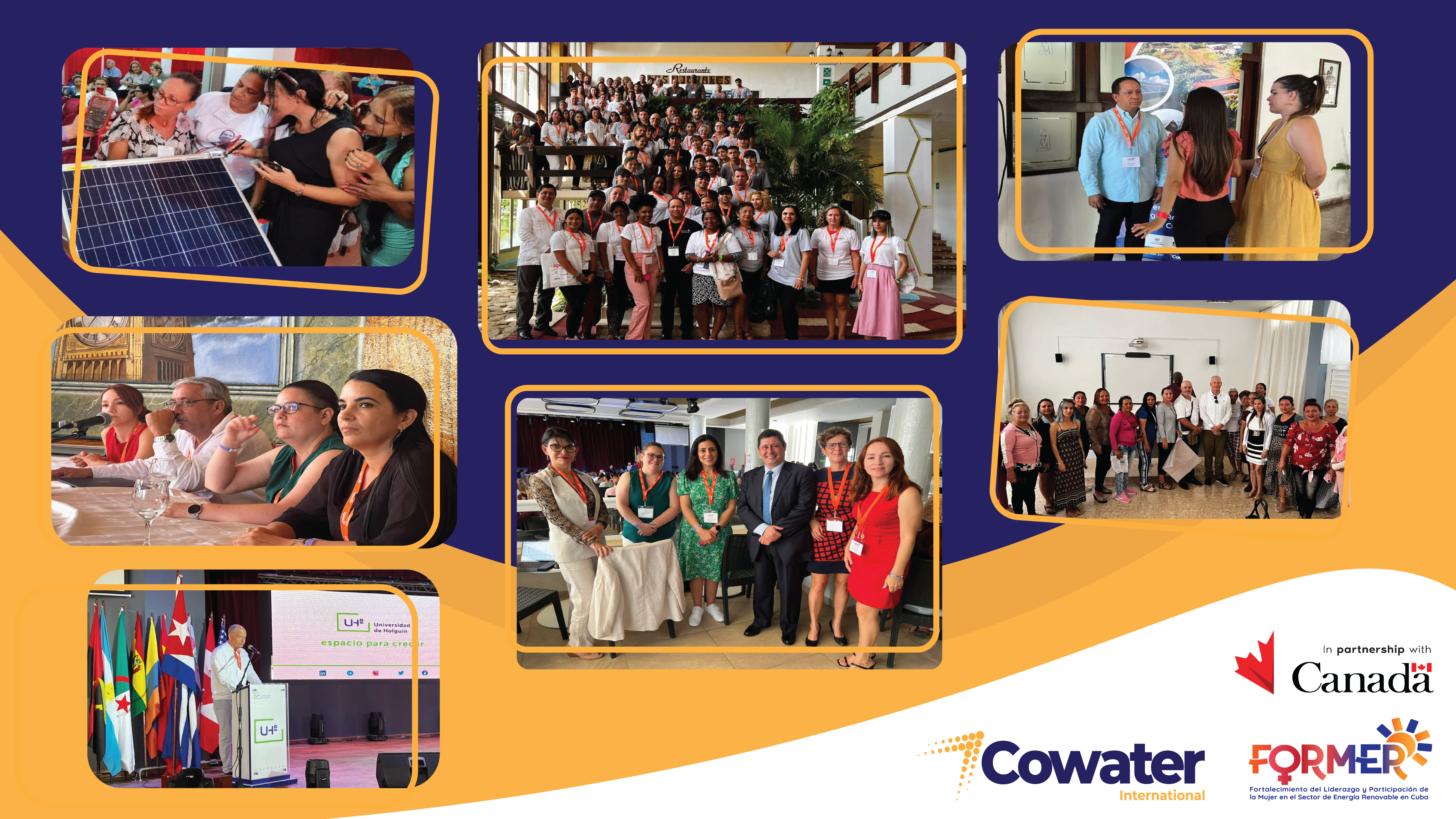
Putting people at the centre of renewable energy transition: reflections around COP28
Author: Harshita Bisht, Project Manager, Environment and Climate Change, Cowater International
Ramping up ambition at COP 28 for global emission reduction
As nations gather for COP28 UN Climate Conference in Dubai, the urgency for ambitious actions on low carbon development gets more serious than ever. The recently released UN Emissions Gap Report 2023 confirms the gravity of situation, as high global temperatures and greenhouse gas emissions continue to break new records. As we head towards a 2.5-2.9°C temperature rise above pre-industrial levels, countries need to cumulatively step-up climate action and urgently deliver emission reduction targets much more than what is already promised in their 2030 pledges under the Paris Agreement. To put us back on track and limit temperature rise below 1.5-2°C above pre-industrial levels would require ambitious emission reduction targets backed by innovation in technology, unlocking finance and scalable practical actions on the ground.
Renewable energy transition: At the centre of low carbon development and emission reduction pathways
To close the emission gap and tackle this escalating challenge, renewable energy transition needs to be at the centre of any carbon reduction targets. The world needs to build on the momentum created in 2022 as investments in renewable energy equaled investments in fossil fuels for the very first time. Governments across the globe must deliver by rapidly scaling up renewable energy solutions in a just and equitable manner.
Just energy transition in low- and middle-income countries creates multidimensional benefits, providing energy access to all, creating jobs while lifting millions out of poverty. The roadmap for effective implementation of the clean energy transition would require a combination of factors to succeed. Most importantly, countries will need to put in place stronger national and sub-national governance and build the institutional capabilities to support the implementation of their low carbon development commitments. At sub-national level this should translate into the integration of renewable energy targets into sectoral policy and plans, budgets and investment decisions, and ensuring that climate finance instruments are aligned with long-term energy development strategies.
Putting women at the heart of renewable energy transition: Cowater International’s approach to inclusive green economy
Middle- and low-income countries across the world face numerous challenges in the energy transition, including government-wide coordination, buy-in among various public and private sector stakeholders and a long-term planning horizon supported by diversified financing instruments. It is critical for the national and sub-national governments to work together to adopt renewable energy and energy efficient solutions in a just and equitable manner.
The renewable energy transition offers the promise of green jobs, sustainable economic growth and poverty reduction. However, capitalizing on these opportunities will need to address gender and equity to maximize the socio-economic benefits of investments in renewable energy. At Cowater, we firmly believe that putting gender at the heart of the clean energy transition must be central to the way renewable energy programs are designed and implemented at the local level. This means adopting a holistic and gender-responsive renewable energy transition pathway that engages women as ambassadors, advocating for the uptake of renewable energy and energy efficient (RE&EE) solutions and facilitating women’s participation in green jobs development as entrepreneurs and cleantech professionals. Without equity in planning, design and delivery of RE programs, the tangential benefits of sustainable development would be lost. Here are some examples of how Cowater International is working to strengthen gender-inclusive clean energy transition.
In Jordan, the Sustainable Energy and Economic Development (SEED) program has engaged women to support the development of green jobs and increase access to affordable renewable energy and energy efficient solutions in Jordanian municipalities. It has already installed four 1MW solar farms, invested in EV charging stations and other energy efficiency solutions contributing to an overall reduction of approximately 6.2 thousand tons in CO2 emissions. SEED has supported women and youth as energy entrepreneurs and created opportunities for them in the cleantech sector. The initiative has helped raise awareness about renewable energy for more than 77 thousand people and has created over 300 skilled jobs in Jordan’s EE & RE sector.

In Cuba, the FORMER initiative, funded by the Government of Canada, is targeting the education sector, building the capacities of women to participate in Cuba’s renewable energy sector through better RE skills. The initiative is integrating learning on low carbon development in the university curriculum engaging more than 700 students from the Universities of Moa and Holguin, and the Polytechnics of José Antonio Boisan and Luis de Feria Garayalde. To support experiential learning, the project is constructing a demonstration solar park at the University of Moa, benefiting the local academic community. Increasing the participation of women in the uptake of RE&EE solutions it has demonstrated the installations of rooftop solar PVs lighting in more than 1000 homes, benefitting about 7500 people.

In Burkina Faso, renewable energy solutions are being used to boost climate smart agriculture and create economic development opportunities for women entrepreneurs and local farmers. A Special Economic Activity Zone has been created to support the proliferation of RE solutions. This has helped 128 entrepreneurs, including 36 women’s groups, in agriculture and allied sectors. The initiative has further improved rural access to energy through electrical grid extension to communities, installation of off-grid solar PVs to rural health clinics and market development for pico-PV lights and solar home systems.
Lessons for the future
Across all these experiences one thing is common – the creation of a shared vision across different actors is imperative to designing community and gender-centered clean energy transition. Prioritizing local developmental needs helps navigate political, institutional, financial, and technical barriers and using gender as an entry point unleashes untapped socio-economic opportunities. For vulnerable communities across the world, renewable energy transition creates strong adaptation co-benefits for people, while helping governments achieve their low carbon development targets. It also presents opportunities to change complex social and gender norms using energy as a catalyst for poverty reduction, local economic development, and social transformation.
A reminder yet again for nations coming together at COP 28 to match global ambitions with real life actions on the ground.
Related Content
Enhancing Women’s Leadership and Participation in Cuba’s Renewable Energy Sector
The sixth work mission of the FORMER project, funded by the Government of Canada through Global Affairs Canada, has successfully concluded. The mission lasted from October 29 to November 11, […]
FORMER Cuba Project hosts the Second International Symposium on Gender and Renewable Energy in Holguin
Cowater International-led “Enhancing Women’s Leadership and Participation in Cuba’s Renewable Energy Sector” (FORMER-Cuba) Project, an initiative of the governments of Canada and Cuba, is hosting the Second International Symposium on […]






